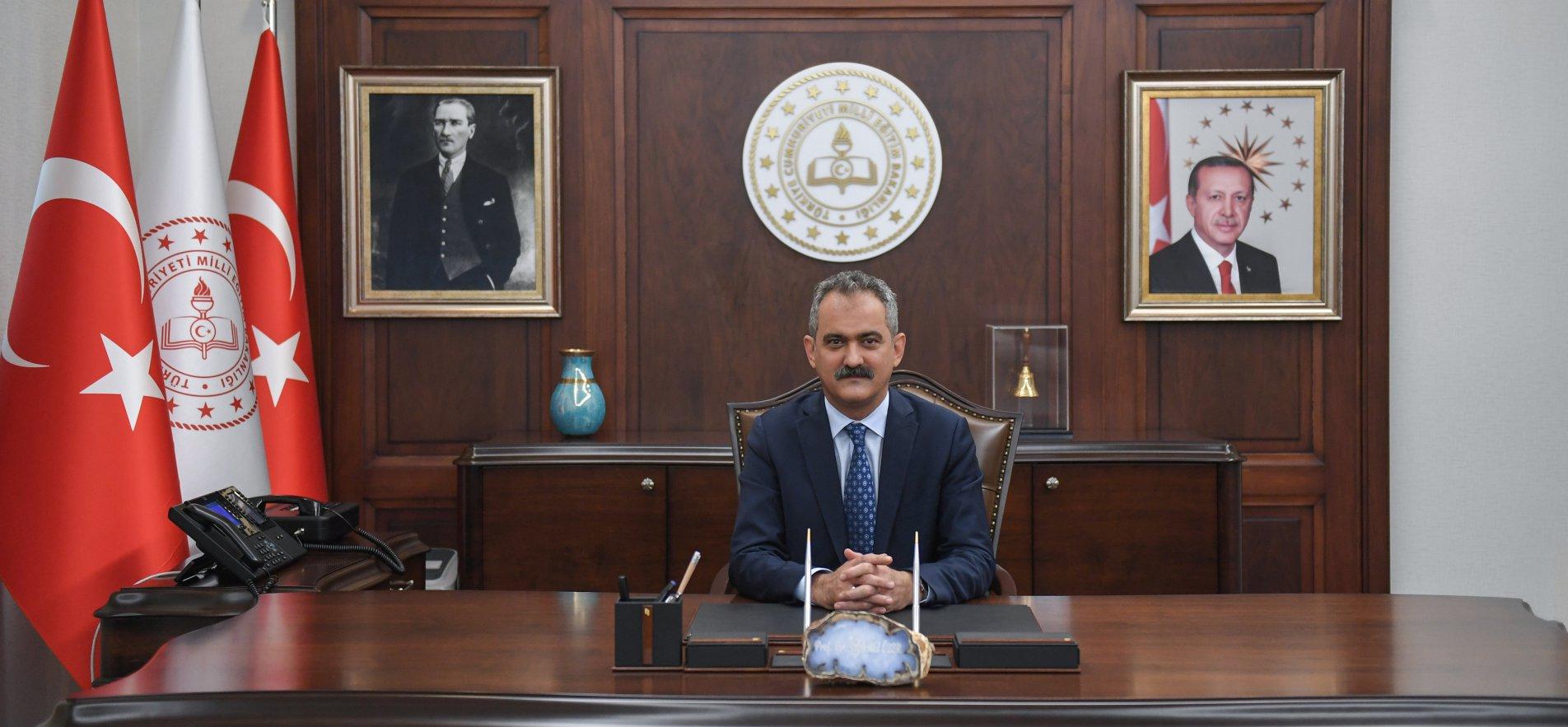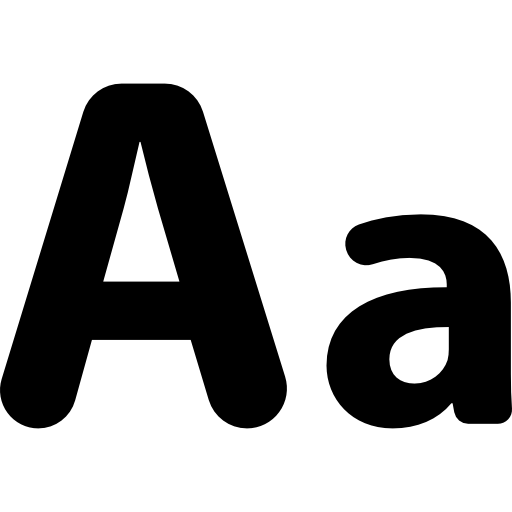Question: It has been observed that the Ministry of National Education has been recently giving special importance to vocational education. When we look at the vocational education history in Türkiye, we see that it went through serious difficulties. What difficulties Türkiye faced in its vocational education adventure?
Özer: There were two crucial stages in the construction of vocational education in Türkiye. First of all, the state was responding to education as well as taking an active role as the main employment provider. State was the main provider in everything. Due to this reason, it was providing education while it maintained the continuation of the production and service sector and supply-demand balance. However, the state withdrew from the production and service sector in the whole world. Consequently, states abandoned vocational education during this process in the world, especially in the Continental Europe. As a result, there has been an increase in the share of the private sector in vocational education. This was an important transformation as the private sector became the main employment provider in the labor market. In Türkiye, vocational education was still under the responsibility of the state while the production and services sector shifted to the private sector. As a result, we have experienced a negative process in the supply and demand planning.
State has given incentives to the private sector in order to increase their share in vocational education especially in the last 20 years but it failed to get the desired outcome. We must also mention coefficient practice dated 1999 that prevented the graduates of religious education and vocational education institutes from enrolling in higher education. This practice caused a trauma in the vocational education system in Türkiye. Vocational schools turned into institutions which were not preferred by academically successful students.
Question: What are the crucial attempts in the new vocational education system?
Özer: There has been a paradigm shift in vocational education recently. We included labor market representatives to all education processes of vocational education institutions.
Employers and labor market representatives are no longer just a stakeholder in vocational education. We updated the curriculum, we plan skill training programs for students, organize on the job and professional development training programs for teachers with them. In other words, vocational education transformed into institutions where our Ministry and sector cooperated and prioritized employment of graduates. This transformation increased the quality of education. Labor market is directly involved in the education process. This encouraged students to enroll in vocational education. We have signed cooperation protocols in all sectors within a short period of time. Our first step was the protocol signed with ASELSAN. As a part of this protocol, the Ministry of National Education started to give vocational education in the defense industry sector.
Defense industry in Türkiye is getting stronger. Hear it from our President Recep Tayyip Erdoğan, the share of local production in the defense industry was 20 percent 20 years ago and this figure reached 80 percent today. We achieved this transformation due to the increasing quality of human resources. Then we funded İTÜ Vocational and Technical Anatolia High School, then Teknopark İstanbul Vocational and Technical Anatolia High School which focused on software training. Then, there is the Tophane Vocational and Technical Anatolia High School which specializes in Micromechanics.
We have opened model schools in different areas, too. As a result, vocational high schools turned into a center of attraction for academically successful students. We have reversed the process. These improvements increased the production capacity of these schools. They produced and earned income; vocational schools responded to their own needs or other schools affiliated to our ministry.
Question: What are the advantages of the new system for students?
Özer: Income of all vocational high schools in Türkiye was around 200 million liras. After our projects and consultations with stakeholders we have increased the variety of production of these schools and students are taking an active role in the production process. This system has three advantages. First of all, students are learning while producing. It is the most permanent way of learning. Secondly, production activities at schools increase the employment rate of students as daily production helps students to improve their production capacity according to the highest technology and professional skills. Finally, students and teachers are getting monthly salaries.
In 2021, we have increase the income of vocational high schools from 200 million to 1 billion and 162 million. We have distributed approximately 50 million liras to students and 110 million to teachers according to their contribution to the production. In addition to its other positive impacts, these attempts changed the approach to vocational education. In some schools, students are getting 4 or 5 thousand liras monthly salary.
Question: What is the contribution of vocational education to production?
Özer: Shift in the management model of vocational education after our cooperation with the labor market representatives caused a rapid increase in the production capacity and supported the confidence of students about their ability to produce the most needed products in the society.
During the Covid-19 pandemic, these schools displayed an incredible performance in producing most urgently needed products such as masks, disinfectants, face guards, mask machines, ventilators and rapid antigen kits.
Remember those days, money was not enough to buy the product you needed and production was very important. As our President frequently mentioned the importance of local and national production, our vocational high schools responded to this need.
Question: You especially emphasize the importance of intellectual property rights in vocational education. What was your motivation?
Özer: For example, our Ministry had no culture about patents, useful models, brand and design. Individual projects of students and some hard working teachers were registered but there were no systematic effort about intellectual property rights. We have associated increasing the production capacity of vocational high schools with intellectual property rights projects. Our biggest capital is our human resources. We signed cooperation protocols and started to disseminate intellectual property rights culture not only in vocational education but also in science and arts centers, science high schools and special education schools.
The Ministry of National Education was annually making the registration of 2,9 or 3 intellectual property rights in the last decade. In 2022, we have made the registration of 7,200 products in the first months of 2022. In addition to responding to the needs of local markets, vocational education institutions are now exporting their products. Recently, we have exported a truck of cleaning supplies to Portuguese. Vocational high school students are not only getting education but they also learn production, innovation and commercialization.
Question: What is your model in cooperation with stakeholders in vocational education?
Özer: Vocational education has stakeholders about vocational education such as the Ministry of Tourism and Culture and Ministry of Agriculture and Forestry. We also cooperate with universities such as İstanbul Technical and Yıldız Technical Universities.
Our Ministry aims at actively including all stakeholders and labor market representatives to the education process. We have initiated the "81 Vocational High Schools in 81 Cities" project in cooperation with the TOBB.
Question: What are your projects about the Vocational Education Centers?
Özer: As you know, there are two different types of vocational education in our country. First one is the vocational and technical Anatolia high schools and the other is the Vocational Education Centers. Students enrolled in these centers are going to school once a week and work at companies and receive on the job training programs in a real business environment for 4 or 5 days a week. It is a successful education system with approximately 88 percent employment rate.
Question: What kind of a model have you developed in order to increase the success of Vocational Education Centers?
Özer: Unfortunately, the Vocational Education Centers have not reached the desired level in terms of capacity. We have seen that despite being an important instrument in decreasing young unemployment rates, they were not used efficiently. We have taken two important steps. First of all, we are now giving diplomas to the students of these centers. We have founded a flexible model blending education and work. As a result, this step allowed us to increase the number of apprentice students to 159,000 from approximately 87-90 thousand students but this was not enough for us. Small and medium size enterprises need a large number of foremen and master students. Due to this reason, we have made two important amendments in the Vocational Education Law No. 3308 on December 25, 2021.
Question: What are those amendments in the Vocational Education Law?
Özer: First of all, 30 percent of the salary paid to students enrolled in the Vocational Education Centers was compensated by the employer. After the amendment, the state is paying the entire salary of students.
Secondly, every student enrolled in these centers are getting 30 percent of minimum wage as a monthly salary and after their third year, they receive a monthly salary equivalent to 50 percent of minimum wage. All students are also insured against occupational illnesses and accidents. State is paying all these fees.
Question: What was the impact of the amendment?
Özer: Number of students enrolled in these centers increased from 159,000 to 520,000. In other words, the number of students increased by 3 times within 5 months. Another advantage of these centers is the lack of age limit for registration. 50 percent of students of these centers are older than 18 years.
Another important fact is increasing interest from female students. In previous years, the number of women enrolled in vocational education was around 25,000 and this figure reached 100,000 today. Our goal is to enroll one million people to these centers until the end of 2022 as mentioned by our President Erdoğan. Our goal for the next two months is 750,000 students.
Question: What will be the contribution of these improvements to the employment rates in Türkiye?
Özer: The process already continues beyond our expectations. This shows that our stakeholders are aware of facts and assume an active role in the education process. I believe that vocational high schools will make a very important contribution to decrease young unemployment rates until the end of 2022. Maybe, in the future, we will export the quality of human resources to foreign countries.
Question: What is the goal of international vocational and technical Anatolia high schools?
Özer: We have founded 7 international vocational and technical Anatolia High Schools in Türkiye in an effort to carry our experience and development in vocational education to a different level and allow students from Balkans to enroll in these schools. We also signed a cooperation protocol with the Ministry of Culture and Tourism in order to manage this process together. The Presidency for Turks Abroad and Related Communities will take an active role in this project. The Republic of Türkiye will help these foreign students to learn more about Türkiye, its culture and the quality of human resources in these countries.





























